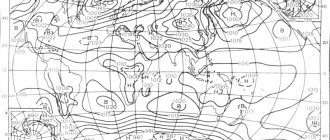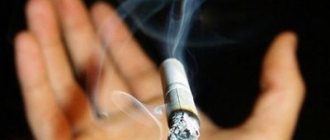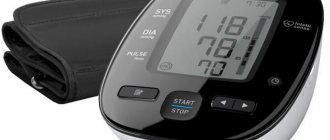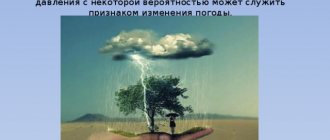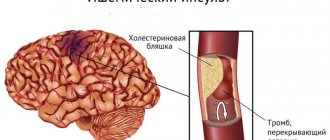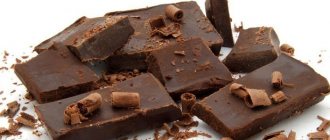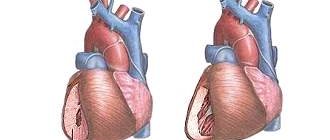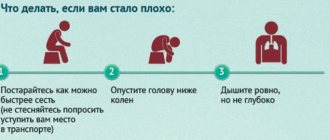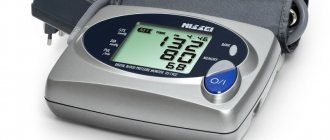In hot weather, many body systems work under increased load, which causes disturbances in their functioning. People with chronic heart and vascular diseases are especially susceptible to such failures. But pressure surges are possible even in a healthy person, so you need to know how to act correctly in such situations.
How does heat affect the cardiovascular system?
Heat and pressure are related. The number of visits to doctors regarding blood pressure surges is growing along with rising air temperatures. Hot weather has a negative effect on the cardiovascular system, provokes an exacerbation of chronic diseases or causes their first manifestations.
Very often, people who do not experience problems with blood pressure under normal conditions notice some changes in the functioning of body systems with the onset of heat:
- There is a feeling of lack of air;
- Shortness of breath occurs;
- I want to slow down and move less in general;
- Often there is a desire to sit and relax.
All this is due to the additional load on the heart that occurs when the ambient temperature rises.
Low blood pressure in hot weather
Heat and low blood pressure often become companions due to an increase in blood viscosity associated with additional fluid losses and a violation of the water-salt balance. This leads to a decrease in the tone of the vascular walls, the body experiences a lack of oxygen, and loses the ability to adapt. All this provokes a decrease in blood pressure. Signs of this condition are:
- Pain in the temples or back of the head;
- Severe unreasonable fatigue;
- Nausea, vomiting;
- Feeling of difficulty breathing, causing panic;
- Visual impairment;
- Increased sweating;
- Numbness of hands;
- Fainting;
- Apathy.
A sharp decrease in blood pressure can be life-threatening, as it often causes serious complications. One of them is a violation of the blood supply to the brain. At the first signs of a drop in blood pressure against the background of heat, it is necessary to take action, and if there is a significant deterioration in health, call an ambulance.
When is urgent medical attention needed?
- The thermometer shows 35°C, and the temperature continues to fall.
- A decrease in temperature is accompanied by bleeding, vomiting, speech and vision disturbances, loss of consciousness, hallucinations, severe yellowing of the skin and whites of the eyes.
- The temperature is reduced in a child or an elderly person and is combined with general poor health.
- There are signs of hypothermia: pale skin, bluish nasolabial triangle, chills, shortness of breath, rapid pulse, lethargy.
- Low temperature is especially dangerous for elderly and seriously ill people.
What to do if blood pressure drops?
If feeling unwell in the heat is associated with a decrease in blood pressure, it is recommended:
- Drink enough water - 250 ml every hour and a half. This allows you to reduce the viscosity of the blood and help it actively move through the vessels;
- Take a contrast shower - such water procedures normalize blood pressure by increasing vascular tone;
- Walk more - while walking, not only muscles work, but also blood vessels, which leads to an increase in the tone of their walls;
- Include in your diet foods that improve blood composition and the condition of blood vessels - liver, vegetables, berries, seasonal fruits.
The reason for the decrease in pressure may be pinching of one of the areas of the vascular system due to muscle tension. “Belly breathing” and performing breathing exercises several times a day help relieve this spasm.
Prevention
Since acute respiratory infections cause high blood pressure, the first thing to do is reduce symptoms. Conventional preventive procedures that are easy to carry out at home will help:
- For now, avoid contact with a sick person;
- refrain from participating in public events during the epidemic;
- always wash your hands after leaving the house and do not put dirty hands in your mouth;
- To boost your body's immunity, eat a clove of garlic or a small onion.
Preventative measures are simple, and filling them regularly will save you from the flu and other colds. And if the flu is a common occurrence, you need to reconsider your lifestyle and change some things. This will help avoid progression of the pathology. We should not forget about periodic physical activity and proper nutrition.
Increased pressure in hot weather
Can heat cause blood pressure to rise? This is quite possible, especially if a person suffers from arterial hypertension. The body's first reaction to heat is a decrease in blood pressure due to vasodilation. Then the heart rate increases, and the concentration of sodium in the blood plasma increases. The body loses salts due to increased sweating, the load on the heart increases, and all this can lead to increased blood pressure.
If you feel unwell, you must take the medicine recommended by your doctor. If your health does not improve, you should seek medical help. Hypertensive patients need to carry prescribed medications with them and also maintain a drinking regime. However, it is important not to overdo it with water consumption, since excess fluid entering the body can cause swelling of the lower extremities.
How to prevent pressure surges?
People prone to pressure surges in the heat must adhere to the following rules:
- Minimize the time spent on the street between 11 a.m. and 5 p.m.;
- Wear loose clothing made from natural light fabrics and a hat;
- Regularly measure your blood pressure using a home blood pressure monitor to determine how your blood pressure changes when the air temperature rises;
- Do not stay in direct sunlight for a long time;
- Eliminate intense physical activity, opting for leisurely walks on the shady side of the street;
- Control the air humidity in the room - the indicator should not fall below 60%;
- Eliminate fatty and smoked foods and alcohol from the diet;
- Stay calm and avoid nervous tension.
If weather forecasters promise heat, you should consult a doctor in advance to clarify the dosage of medications in such situations, the possibility of using herbal remedies, the need to take medications that thin the blood and prevent the formation of clots.
Treatment options
Regardless of the treatment method, the disease is not transmitted to the legs. A man takes a pill and continues to work, not realizing how it overloads an already overloaded body. Treatment should be comprehensive and include, in addition to medications, proper diet and rest. There will always be work, but a person has only one life. Therefore, with high blood pressure, 3-4 days of bed rest will give you several years of healthy life.
Medicines
Despite such a symptom as hypertension during a cold, traditional treatment is used. Drug treatment includes taking tablets, using drops and powders. If body temperature is below 38 ° C, it cannot be lowered. The body itself fights the virus, trying to restore normal functioning of the organs.
If the temperature rises and a person with hypertension feels worse, it is lowered with the help of medications. Typically, tablets or syrup are used.
Aspirin or Paracetamol are good for this. Contraindications for this condition are drugs such as Panadol. They are prohibited because they contain caffeine.
It is allowed to combine drugs and take several types at the same time. You can also take vitamin C to relieve fever while rinsing your nose with mucus. In this case, vitamin C serves as an addition to the main treatment. It will be much better if the patient takes a course of complex vitamin preparations. This approach will ensure that all beneficial ingredients are absent from a cold, and the patient will recover faster.
Traditional methods
In addition to pharmacological treatment, traditional medicine is also used. They cannot act as separate treatments. Simple recipes improve the health of the body by getting rid of cold symptoms, but they do not kill viruses. Treatment methods:
- Cranberry. Most effective against viral infections. Restores the functionality of all internal organs. Supports the body in the fight against microorganisms.
- Berries against colds. Many fruits are rich in vitamins and are recommended for colds. The most effective are considered to be rose hips, raspberries and currants. Not only berries are used, but also twigs and leaves.
- Honey. A natural cold remedy that can be added to tea.
- Inhalation. A simple procedure helps get rid of a runny nose and cleanse the mucous membranes in the nasal cavity. Freshly boiled potatoes, fir and essential oils are suitable for inhalation.
Although all the above methods are completely natural, they can be harmful to your health. Before using them, be sure to consult your doctor. This ensures that the person does not encounter a negative reaction from the body.
Dizziness in the heat
The question often arises: why do you feel dizzy in the heat? This condition can be a symptom of various diseases, a sign of low blood pressure. Only a doctor can accurately determine the cause.
Dizziness occurs when heatstroke is an overheating of the body, leading to serious disruptions in the functioning of its systems. Very often, this condition occurs during heavy physical work in hot weather, for example, cultivating a garden. Causes may include wearing warm synthetic clothing in hot weather, drinking alcohol, and taking certain medications.
Most susceptible to heat stroke:
- Aged people;
- Small children;
- Pregnant women;
- People have a genetic predisposition to thermoregulation disorders.
In case of heatstroke, you need to go to a shaded place, lie down with your legs and head elevated, and drink cool water. You need to moisten your face with cold water and apply a wet cloth to your forehead and neck. You can wrap your body in a damp sheet and apply pieces of ice to your head in the forehead and back of the head.
Fever and headache
Headaches in the summer heat are often a consequence of dehydration. With a lack of fluid, the blood supply to the brain, which consists of 90% water, deteriorates. If your head begins to hurt at the same time as a feeling of tightness in the chest and lack of air, shortness of breath and increased heart rate, this may indicate problems with the heart.
Help relieve headaches in hot weather:
- Cool shower or foot bath;
- Cold compress on forehead;
- Peace and quiet;
- Lack of bright light;
- Rest in a supine position on a high pillow;
- Compliance with the drinking regime (you can drink water with lemon).
If the situation worsens, you should consult a doctor. A headache may be a sign of sunstroke. If it is accompanied by vomiting, it is a dangerous condition and requires medical attention.
Causes of the condition
When high blood pressure, the symptoms of which are pronounced, is observed against a background of high temperature (38 degrees and above), in most cases we are talking about the following painful conditions:
- cold;
- failure of the kidneys;
- thyrotoxic crisis;
- catecholamine crisis (pheochromocytoma);
- vegetative crisis.
These are the main reasons why a person has high blood pressure and fever at the same time. But each disease affects the body differently. Timely detection of the condition makes it possible to quickly react, visit a doctor and begin treatment.
Let's consider each of the pathologies in more detail.
